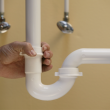The 2019 car sales in the U.S. indicate that they aren’t slowing down, even after having suffered a 1.6% decline from the 2018 numbers. The total sales for domestic light-duty vehicles amounted to 17.1 million last year, which makes it the fifth consecutive year of selling more than 17 million.
It’s a good time as any to buy your first car as the market is going strong. However, the market isn’t the only thing to consider.
If you’re asking, “what car should I get for my first car?” then you’re in the right place. We’ll help you find out the right car that matches your needs and budget. Keep on reading for our tips.
Table of Contents
1. Establish Your Needs
First, assess your needs and lifestyle to narrow down your choices; what do you need the car for?
Do you need one to get to and from work? Are there going to be other passengers, such as kids or your family members? Do you need to carry a lot of heavy or large things?
These will determine what car to buy. For commuting purposes, a sedan will do. But, if kids will be riding with you, you should consider a bigger car.
For city driving, there aren’t many considerations to take. If you’re planning to take it on vacations where you have to drive off-road, though, then you need a powerful car.
2. Determine Your Budget
Rather than asking, “what car should I buy?” first, why don’t you start with the question, “what car can I afford?”
If you have a strict budget, this is going to be more important as it puts severe limitations on your choices, so you must decide on a price range first. Consider your income and how much of it you can put toward monthly car payments.
The general rule is that it shouldn’t exceed 15% of your monthly income. If your needs are greater, though, then don’t let us stop you.
Make sure that your budget is realistic for the type of car you need, too. While it’s true that there’s a model for you at every price point, the bigger cars will no doubt cost higher than the smaller ones.
3. Sort Your Priorities
Because cars come with a lot of features, you need to sort them out to establish your must-haves and what you can do without. When identifying which car to buy, consider the following:
Latest Tech
Do you want the latest technology in your car? For instance, Apple CarPlay and the likes might be important to you.
You might need a connected smartphone app, adaptive cruise control, automatic emergency braking, and such – you might even want a car with a self-drive option.
Your budget will have to accommodate these features, but they’re worth it if they’re a priority for you.
If otherwise, however, there’s no harm in not having the latest tech as most of them aren’t a necessity, anyway. As long as it gets you from point A to point B safely, it’s a good car.
Speed
Do you have a need for speed? You’ll likely need a sports car or at least a model that’s built like one.
Of course, you’ll have to account for the traffic situation in your area. The roads and traffic might not enable your car to drive to its full potential. In this case, getting a fast car is a waste since you won’t even be able to drive it fast.
Efficiency
If you’re using the car for commute, getting a hybrid or diesel might not pay off. More efficient cars have premium price tags, so you have to make sure you’re getting your money’s worth when you buy them.
They’re more beneficial for long drives and road trips.
Electric
You should also decide if electric cars are an option for you. Although they’re still somewhat new, there are already some you can buy to save on gas – because you won’t have to get gas.
You’ll have to charge them, though. One trick to saving money in this area is to charge at night when power rates are at their lowest.
However, you’ll have to pay a huge upfront fee in exchange for saving money in the long run. This is a huge consideration, but if getting ahead of others is important to you, then this is a good investment.
4. What Car Should I Get? New or Used
New is the goal and not only because of the new car smell. You’re less likely to have problems with new cars because no other person has used them.
With used cars, you must have a discerning eye. You need to look out for signs of damage and the hidden risks. No one will tell you all the things a car has experienced if it will talk you out of buying it.
Still, you can save a lot by buying used cars. A car’s value depreciates quickly, so you’ll likely get the model you want for a much lower price.
It might be the only way to get the car you need with the features you want. These cars are a good starting point.
5. Test Drive Before Buying
After considering your budget and needs, research what cars in the market fit them. Take the time to get to know each one by reading reviews and such. Get a shortlist, and then it’s time to take them to a test drive.
Alternatively, you can also go to dealerships and ask around what cars fit your needs and budget. Don’t skip the test drive part; this might be the decisive part.
After test driving, go home and sleep on the decision. As buying a car is a huge investment, this will ensure you make the best decision you can make.
Get the Right Car Today
The answer to the question, “what car should I get,” lies on you. While we can’t answer that for you, we can at least help you arrive at the right decision.
Follow our tips above and you can’t go wrong. If you need more help, check for more tips with our other blog posts right here, today!

















